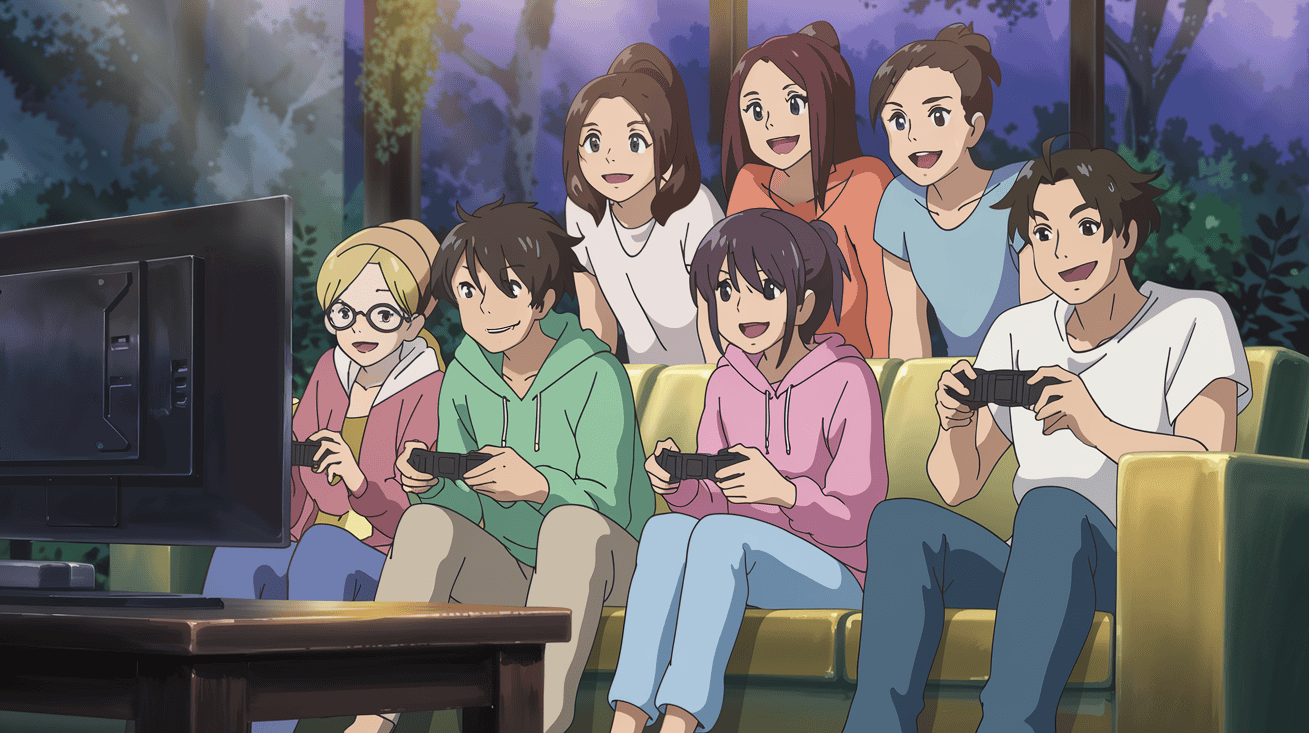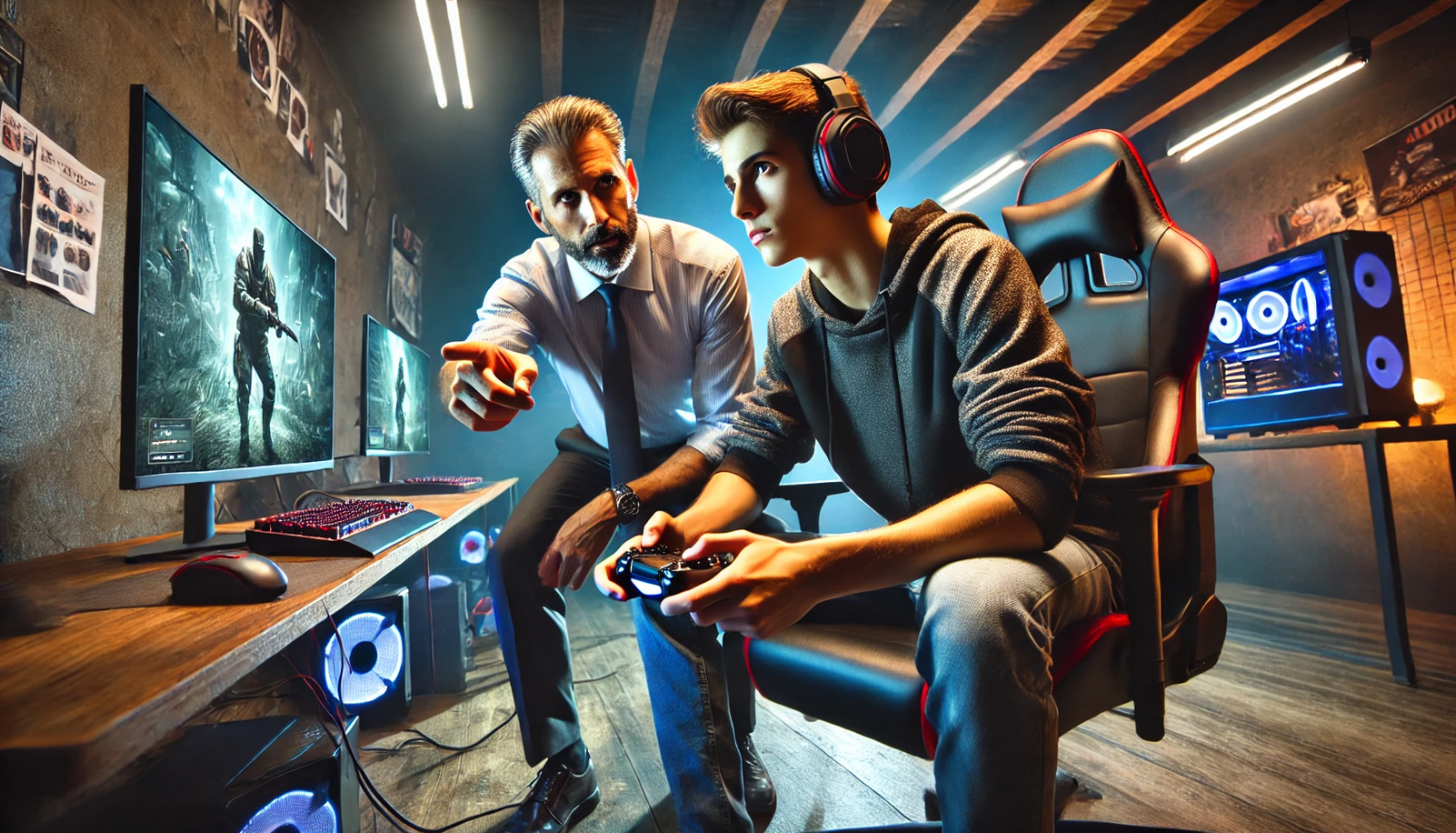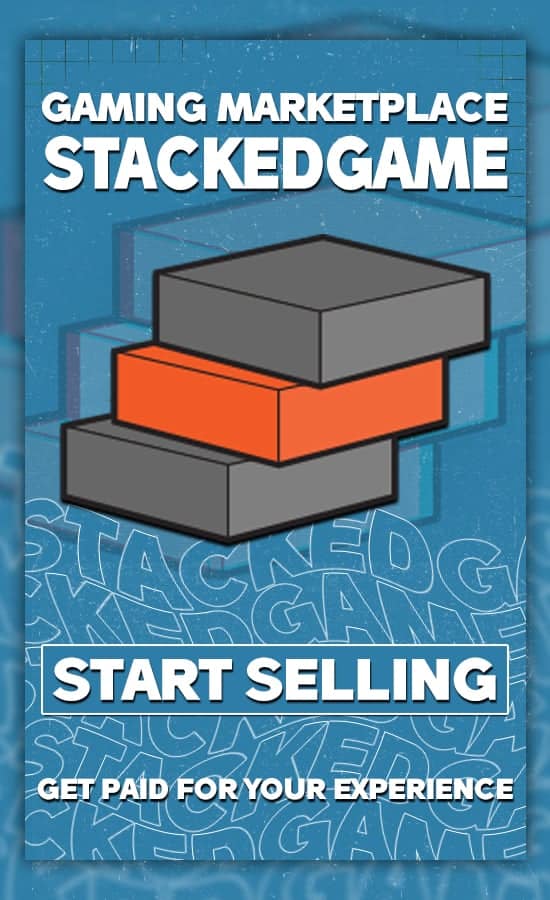Summary
What is a Gaming Session?
First, let’s start with what is a gaming session? A gaming session involves playing a video game by yourself, another person or even a group of people for an extended period of time. Gaming sessions can range from a fun, social gathering to an intensive practice session, it’s all dependent on the player.
Why Gaming Sessions Matters
Gaming sessions are important for a number of reasons. The importance branches off between 2 main use cases; social and professional gaming sessions.
Social video game sessions have made their mark recently in relation to the Covid pandemic and lock down laws. In most areas people were prohibited from socializing in person for a long stretch of time leaving the population socially starved. That’s where video game sessions came in, being able to virtually see your friends and play casual or competitive games filled that social void. In a time of social isolation video game sessions were a great tool to feel connected again.
With the consistent rise of eSports and professional gaming in general, the second type of gaming session is that of a professional level. Usually orchestrated by coaches or members of a team, professional video game sessions involve a pro gamer playing a video game for a purpose. These purposes include:
- Structured practice environment for consistent skill development
- Clear performance metrics and progress tracking
- Focused time for mastering specific mechanics and strategies
- Deliberate practice of advanced techniques
- Regular feedback loops for improvement
Essential Components of a Gaming Session
Now that we’ve established what a gaming session is, as well as the importance of these sessions. Let’s break down how to succeed with the key components involved in great gaming sessions.
People: Unless you’re playing by yourself, the people involved with the gaming session are crucial, a good group of friends or teammates make for great sessions. Not just in terms of social reward, but the people involved with your gaming session can assist you in a various ways that you may not have considered while playing on your own. For instance in terms of improving, a third party can view your gameplay in an unbiased way, and shed some light with potential mistakes or holes in your game. If you’re aim is not competitively based, but rather socially, it goes without saying that having a group of people involved with your gaming session is the funnest way to play.
Time: Time is essential in order to get a good gaming session in. No one wants to be reminded every minute that they have to leave soon, or go to bed. Setting yourself and your group up with enough time to play is in everybody’s best interest.
Goals: Before beginning a gaming session it may be necessary to define the goals you have for the session. This is generally only associated with the competitive side of gaming sessions but it can be relevant socially if there is a mission, raid or particular rank you and your group are attempting to achieve. Competitively this point has a raised level of importance for every span of time spent on the game in a competitive field is generally for a specified goal. Whether it be to polish off their mechanics, clean up errors or improve team synergy. Establishing the goal before hand is then of the utmost importance to help achieve these goals and to maximize efficiency of the session.
Communication: While playing with a group during a gaming session some sort of communication is required. If you have people around physically in a social setting, communication is sorted out. However when playing online with friends, being able to communicate online is then a necessity. This can be done through 2 main methods.
1. Nowadays every major game has built in comms, whether it be proximity or standard. Communicating through the game has never been an issue in the past and was a staple years ago when online video games were picking up steam with smash hits like Modern Warfare 2 and Black Ops. Today they are a less preferred method to communicate but in the world of cross compatibility gameplay for simplicity sake, they are the preferred option.
2. Third party comms software e.g Discord, TeamSpeak, Skype. Unless the game relies on proximity chat (Among Us, Day Z, Lethal Company) it is almost always the preferred option to hop on a Discord chat with friends. There are a few reasons as to why this has become the favoured option of gamers, these reasons include Quality, Consistency, and Easy of Use. While Discord seems to remain the front runner of comms between players, apps like TeamSpeak still have their place within gaming.
Rules: Whether spoken or unspoken, every gaming session would have some structure involving what you can and can’t do. Rules are important when playing socially or competitively. Being on the same page with the people youre playing with will result in a much smoother gaming session with minimal issues. An example of a rule while playing competitively may involve not giving up when the opponent has a lead and playing it out. While a more casual session may have a ruling not to use a particular character or strategy that is deemed too overpowered and takes the fun away.
Planning your first Gaming Session
Preparing for your first gaming session involves a couple of main steps:
- Ensure you have a setup ready, whether it be a console and couch or gaming pc and chair. Use a place that you find most comfortable.
- Agree on a time with the people involved in the gaming session. Team members or staff should all be on the same page when planning a session.
- Set clear Expectation of Session Structure. For the instance, the plan may be to play for a couple of hours and then spend the next half of the session reviewing the vods. The plan should be clear before the session.
- Ground Rules, as mentioned previously, are important at any level in order to maintain a positive environment. Make sure everyone understands what is and isn’t acceptable.
- Above all else is to Keep a Positive Attitude, while playing casually this is a given, however in more stressful, competitive gaming sessions a player may lose their cool. Remember your mood effects the entire dynamic. Your team members will appreciate a player that doesn’t lose their head.
Managing Time and Breaks

If your goal is to have a long gaming session with friends or teammates, it may seem counter intuitive to have a break or two within the couple of hours. But actually, taking breaks are imperative to successful gaming sessions. The benefits of taking 5-10 minute breaks after an hour or so of playing far exceed the disadvantages. These benefits include a number of physical and mental advantages as well as an improvement in overall performance and more time to communicate with the people involved. Some of the advantages include:
Physically:
- Reduces eye strain and fatigue
- Prevents muscle stiffness
- Maintains good posture
- Reduces risk of repetitive strain injury
Mentally:
- Maintains focus and concentration
- Prevents mental fatigue
- Reduces tilt and frustration
- Allows time to process information
Performance:
- Improves decision making
- Maintains reaction times
- Reduces mistakes from fatigue
- Allows strategy adjustment
Social/Communication:
- Time to discuss strategy with team
- Build team morale
- Address any concerns
- Maintain positive communication
Gaming Sessions Over Time
While playing, you’ll naturally build experience and find out what works best for you and your group. Although it is not rare for these gaming sessions to change as time goes on. Here are the main changes a group may experience with time:
- The group of people involved in the gaming session, within a casual session or a competitive team. Casually people may come and go, as any persons schedule can become to busy for gaming in a particular time of their life. In a professional environment, change is very common. Teams that may not be performing to the level they are expected to may experience changes in their roster including players and staff. Therefore the group dynamic will be altered. Players in these positions need to accept that this is part of esports and professional gaming and be comfortable with a changing dynamic.
- The team communication and dynamic. In cases of more competitive games, there may be a hierarchy or some sort of structure involved in how the team communicates. This dynamic may change over time, a player that was less vocal may now be shot calling more in comms. This is natural for any newer group and should be met with a positive attitude, as finding your group voice is imperative to a success.
- The environment may also change over time. Casually, you may have found a better setup that works for you. Or in a professional environment, the gaming house has transformed into an office with space for staff to watch the group play.
Creating a Positive Gaming Environment
You and your group will either be playing casually or competitively. In both cases its important to create a positive environment within the group. As mentioned earlier the Goals, Rules, People and Time Spent will make or break these gaming sessions.
Casual or competitive gaming sessions will all need to have some sort of communication standards. When playing it’s important to remember your teammates are people too, and they can make mistakes. Constructive criticism is key when trying to help members that are struggling in your game. Avoid the blame game as this is a slippery slope into a toxic environment. Instead try to focus on the positives, and celebrate the wins. Even if the match itself wasn’t won, focusing on the negatives will only drain the team morale. By simply celebrating the positives within a loss, it can elevate the confidence of the group moving forward.
The team or group culture is incredibly important in relation to the quality of a gaming environment. Mutual respect is an absolute necessity when dealing with different players with different styles and mindsets coming together. Supporting one another should come naturally. Being able to communicate clearly, in a non toxic manner, to discuss strategies or ideas to improve their game will only benefit the team in the long run.
The team should share a mindset of growth and learning. No team stays on top forever, so even if you are the best of the best, being able to grow and learn is a necessity for long term success. This is also relevant for more casual players, it’s a great feeling being able to track improvement or see your team climbing the ranked leaderboards. Focusing on improvement is part of a winning mindset and with a team or group all sharing that way of thinking, the sky is the limit.
The group should share a welcoming, friendly demeanor. Creating an inclusive atmosphere where respect is mutually given creates an environment where team members feel at ease. With that type of environment, it becomes natural for the members to share their knowledge and value each others feedback. With an inclusive environment also comes the ability for shared leadership opportunities. Some groups perform better alternating leadership roles between everyone in the group for their opinions, rather than a single voice.

Wrapping Up
Gaming sessions are a great avenue for social connection and professional gaming. Whether you’re playing socially or competitively, understanding the fundamentals for successful gaming sessions is crucial to succeed. From having the correct technical setup, managing your time and maintaining a positive team dynamic. Each member plays an important role in creating the ideal gaming environment.
Successful gaming sessions require balance. Between practice and breaks, between focus and enjoyment and between individual improvement and team development. By implementing proper planning, maintaining clear communication, and fostering a positive atmosphere, you can create gaming sessions that are both productive and enjoyable.
As gaming culture continues to grow both socially as well as professionally, the ability to plan and manage effective gaming sessions becomes increasingly valuable. Whether you’ve just started or looking to improve your existing sessions, these fundamentals include a solid foundation for success.





![[XBOX] Fortnite Pack: Transformers DIGITAL](https://cdn1.stackedgame.com/wp-content/uploads/sell/fortnitenow/I_44121/transformersxbox.jpg)
![[XBOX] Fortnite Pack: Anime Legends DIGITAL](https://cdn1.stackedgame.com/wp-content/uploads/sell/fortnitenow/I_42450/xboxanimelegendsjpg.jpg)
![[XBOX] Fortnite Pack: Minty Legends DIGITAL](https://cdn1.stackedgame.com/wp-content/uploads/sell/fortnitenow/I_42437/xboxmintylegendsjpg.jpg)

